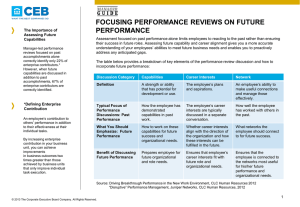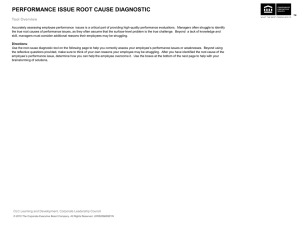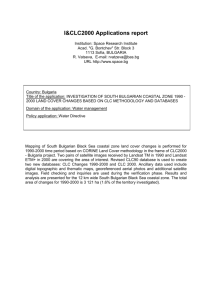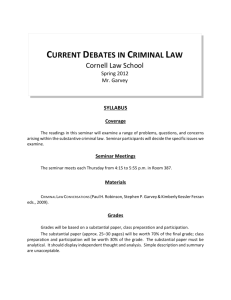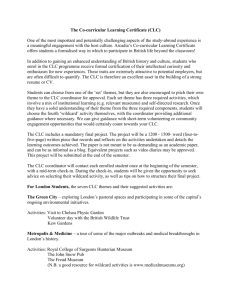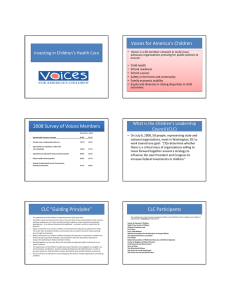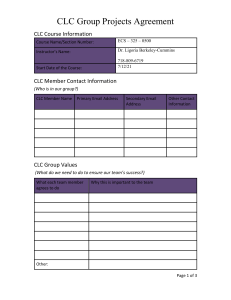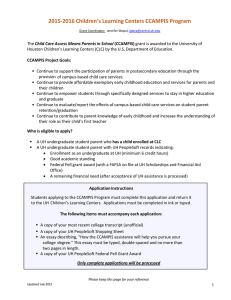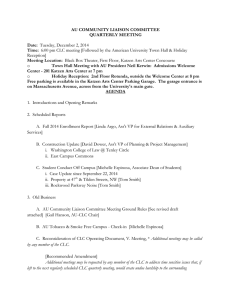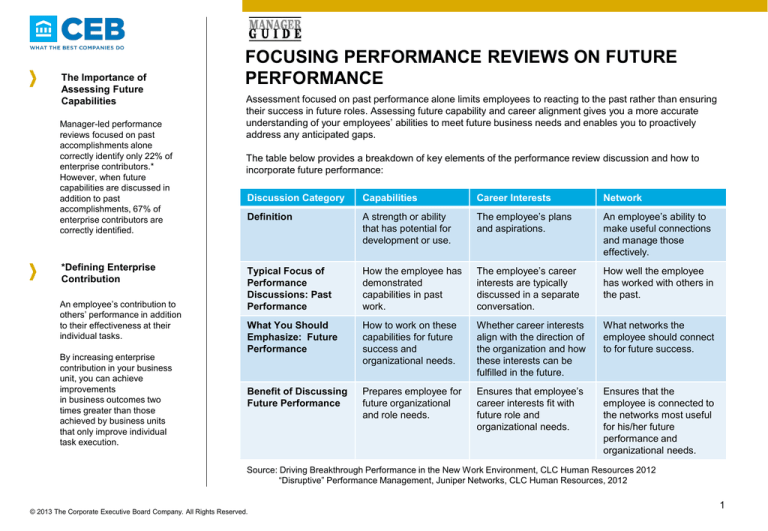
The Importance of
Assessing Future
Capabilities
Manager-led performance
reviews focused on past
accomplishments alone
correctly identify only 22% of
enterprise contributors.*
However, when future
capabilities are discussed in
addition to past
accomplishments, 67% of
enterprise contributors are
correctly identified.
*Defining Enterprise
Contribution
An employee’s contribution to
others’ performance in addition
to their effectiveness at their
individual tasks.
By increasing enterprise
contribution in your business
unit, you can achieve
improvements
in business outcomes two
times greater than those
achieved by business units
that only improve individual
task execution.
FOCUSING PERFORMANCE REVIEWS ON FUTURE
PERFORMANCE
Assessment focused on past performance alone limits employees to reacting to the past rather than ensuring
their success in future roles. Assessing future capability and career alignment gives you a more accurate
understanding of your employees’ abilities to meet future business needs and enables you to proactively
address any anticipated gaps.
The table below provides a breakdown of key elements of the performance review discussion and how to
incorporate future performance:
Discussion Category
Capabilities
Career Interests
Network
Definition
A strength or ability
that has potential for
development or use.
The employee’s plans
and aspirations.
An employee’s ability to
make useful connections
and manage those
effectively.
Typical Focus of
Performance
Discussions: Past
Performance
How the employee has
demonstrated
capabilities in past
work.
The employee’s career
interests are typically
discussed in a separate
conversation.
How well the employee
has worked with others in
the past.
What You Should
Emphasize: Future
Performance
How to work on these
capabilities for future
success and
organizational needs.
Whether career interests
align with the direction of
the organization and how
these interests can be
fulfilled in the future.
What networks the
employee should connect
to for future success.
Benefit of Discussing
Future Performance
Prepares employee for
future organizational
and role needs.
Ensures that employee’s
career interests fit with
future role and
organizational needs.
Ensures that the
employee is connected to
the networks most useful
for his/her future
performance and
organizational needs.
Source: Driving Breakthrough Performance in the New Work Environment, CLC Human Resources 2012
“Disruptive” Performance Management, Juniper Networks, CLC Human Resources, 2012
© 2013 The Corporate Executive Board Company. All Rights Reserved.
1
FOCUSING PERFORMANCE REVIEWS ON FUTURE
PERFORMANCE
Introduction: Listed below are future attributes of performance that you as a manager can discuss in the performance review discussion.
Timing of the Discussion: In a performance review discussion, managers should discuss future attributes of performance first (listed
below), setting the stage for a more honest, balanced conversation and minimizing the stigma associated with negative feedback.
Capabilities
Ask the employee about skills he/she wants to learn in the future.
Talk about the skills the employee must learn and the development areas the employee needs to work on in order to continue to provide value in their
role.
Discuss how the employee’s strengths can contribute to the organization’s vision and future goals.
Motivate the employee to change a past negative behavior or an under-developed skill and discuss the outcomes if the employee changes his/her
behavior.
Career Interests
Ask the employee about their future career interests and aspirations.
Discuss whether the employee’s future career aspirations align with the organization’s vision and purpose and, if not, then how can the two align.
Discuss the possible career paths available to the employee given the organization’s vision and strategy for the future.
Discuss how the career progression would look for at least two positions above the employee’s current position.
Network
Ask the employee about the types (role-related, technology-related, process-related, etc.) of networks he/she is interested in being connected to based on
his/her future career aspirations
Discuss the types of networks the employee needs to be connected to in order to be successful in future roles and how the organization can help him/her
connect to them.
Discuss the employee’s current networks and how they can contribute to a high level of future performance.
Discuss the peers and senior leaders who could have a positive impact on the employee’s future performance as mentors and coaches.
Source: Driving Breakthrough Performance in the New Work Environment, CLC Human Resources 2012
“Disruptive” Performance Management, Juniper Networks, CLC Human Resources, 2012
CLC Human Resources
© 2013 The Corporate Executive Board Company. All Rights Reserved.
2

